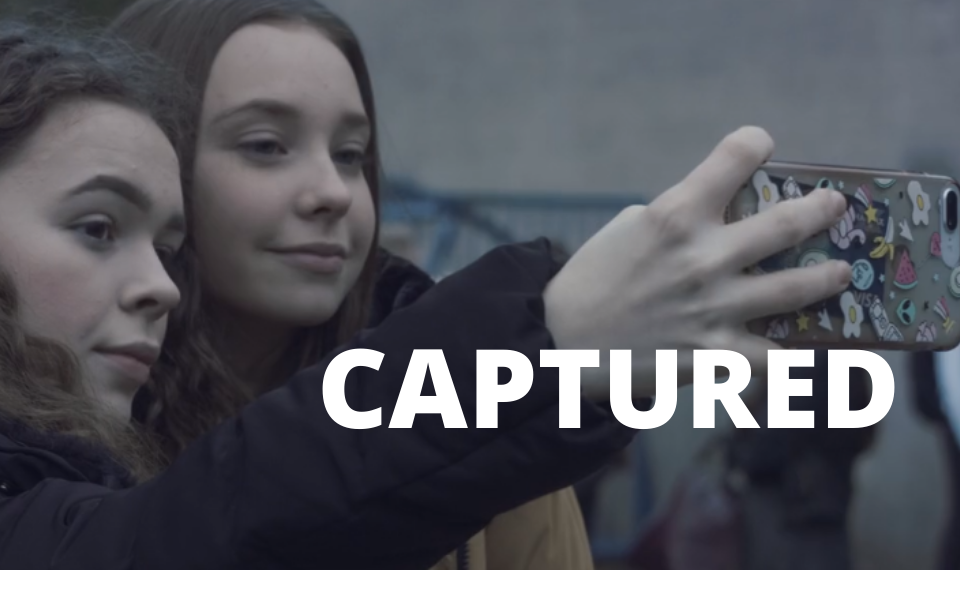
Published Thursday 14 May 2020 at 10:58
A film created to warn young people of image-sharing dangers is being shared to help educators and parents open up conversations about the issue during the Covid-19 crisis.
As young people are spending more time online during the pandemic the film has now been made available to be viewed more widely and can be accessed on online platform vimeo.
Captured, a short film produced by the Artz Centre in Skelmersdale, focusses on the dangers of sharing images online, highlighting the dangers of what is known as ‘sexting’.
Funded by the Police and Crime Commissioner for Lancashire and West Lancashire Community Safety Partnership, the film was produced to be shown in local schools and colleges to support teachers and other professionals to explore image sharing and possible consequences.
Clive Grunshaw, Lancashire’s Police and Crime Commissioner added:
I was really pleased to be able to support the development of ‘Captured’. The hard work from everyone involved in the project really shows and the film can play a vital role in highlighting the issue of sexting and the possible consequences of sharing images.
Educating our children and young people around online dangers is the key to keeping them safe. I am pleased to see this resource being used widely to make sure that people understand the issue and the potential harm it can do.
Young people in Lancashire who have suffered as a result of image sharing can contact Nest Lancashire for confidential help and support. The service has been set up to support anyone under 18 following any type of crime, bullying or harassment.
Jayne Ivory, Blackburn with Darwen Borough Council’s Director of Children’s Services, said:
It’s really important that our children and young people know that any image of yourself that you send, can and might be shared by the person you sent it to. Once you press send, it is no longer in your control.
If you share a ‘nude’ or ‘underwear shot’ even with someone you trust, you are not able to control who they forward it to or where they save it. It can be sent on to anyone or posted anywhere on the internet.
Sadly, these images can end up on social networking sites, pornography sites or even shared with paedophile networks which cause an untold amount of harm not only to the person exposed in this graphic way, but to their families and loved ones.
Although these are not easy messages, it is so important that parents and schools share this message. Our young people should never feel pressured to send an image of themselves to anyone.
Think about why someone would want you to do this. Once they have your image, they have it forever and could even use it against you.
The video is aimed at helping teachers, parents or carers open up conversations and think about when they sharing a photo, text or video of themselves via a phone, tablet or computer to always ask “would I be ok with anyone and everyone seeing this?”
Cllr Maureen Bateson, Executive Member for Children, Young People and Education, added:
It is all too easy to post pictures on social media or to send images via phone messaging services and many children and teenagers will not realise what they are doing and how much danger they might be facing. That can manifest itself in a number of ways and can lead to bullying.
I hope our young people will know that they can ask for help if they feel they are being pressured into posting explicit pictures or have done so without thinking through the possible consequences. If you are worried or frightened please talk to someone you can trust.
Young people are being urged to call police on 101 if someone is trying to, or has forced them to send a sexual image and tell someone they can trust. This could be a parent or carer, teacher or family member.
Young people can call also call Childline free on 0800 111. This number won’t appear on a telephone bill and is available 24 hours a day.
Did you know?
Being involved in sending explicit pictures, where the person in the picture is under the age of 18, can be a criminal offence. This could lead to you getting into trouble with the police, affect your chances of getting a job and even limit the countries that you can travel to.
If someone is forcing you to send an inappropriate image of yourself you should report them to the Police by calling 101.
You can take control of the situation yourself by doing the following;
- If you have posted the image on to a social networking site like Facebook, then you should remove it immediately.
- If you have sent an image to someone else you need to ask them to delete it.
- If the image has been posted by someone else on a social networking site, like Facebook, then you should report it.
- Each social networking site will have its own reporting tool. If you’re unsure, ask an adult to help you. Use the reporting tool to tell the site what has happened, as it breaks their own terms and conditions and they will remove it.
- You will need to find out if the image is available elsewhere online. You can do this by searching for your name and username and placing your name in inverted commas: “
- It is a good idea to repeat the search regularly over a few weeks.
It may be impossible to delete everything online but you will feel more in control if you know what you will say to people about it:
- “I’ve made a mistake”
- “I’ve learnt from my mistake”
Always turn to a trusted adult for support and your close friends will be there to help you through this.
